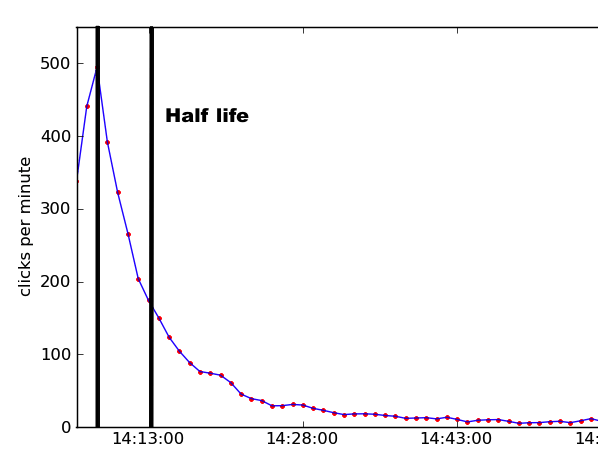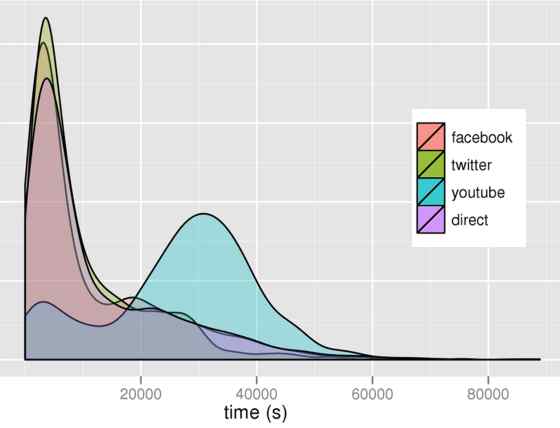| How long do links last? |
| Written by Janet Swift | |||
| Sunday, 11 September 2011 | |||
|
Bitly, the URL shortening service, has done some research into what it describes as the "half-life" of shared links - with interesting results.
Half-life is usually defined in terms of radio-active delay. Bitly's measure of link half-life, however, is defined as the time during which a link will receive half of the clicks it will ever receive after its initial peak. So for the sample link shown below the Bitly half life was just 5 minutes, the interval between the two grey lines on the graph.
Although this particular link (which was to a story East Coast earthquake: 5.8 magnitude epicenter hits Virginia first shared by the Washington Post on Twitter) shows the characteristic decay curve noted by Bitly, its very short half life isn't representative of the 1000 popular links included in the survey. From Bitly's sample the mean "half life" of a link on Twitter is 2.8 hours. This compares for 3.2 hours for Facebook and 3.4 hours for links shared via 'direct' sources such as email or IM clients. What is striking from the graph below is the similarity of the shapes of the density distributions of links shared by Facebook, Twitter and direct sources.
Distribution of half-lifes by referrer types The final curve which shows a different pattern is for links originating on You Tube which have a half life of 7.4 hours. So if you want longer lasting impact for your links first post a video.
If you would like to be informed about new articles on I Programmer you can either follow us on Twitter or Facebook or you can subscribe to our weekly newsletter.
|
|||
| Last Updated ( Thursday, 02 September 2021 ) |



